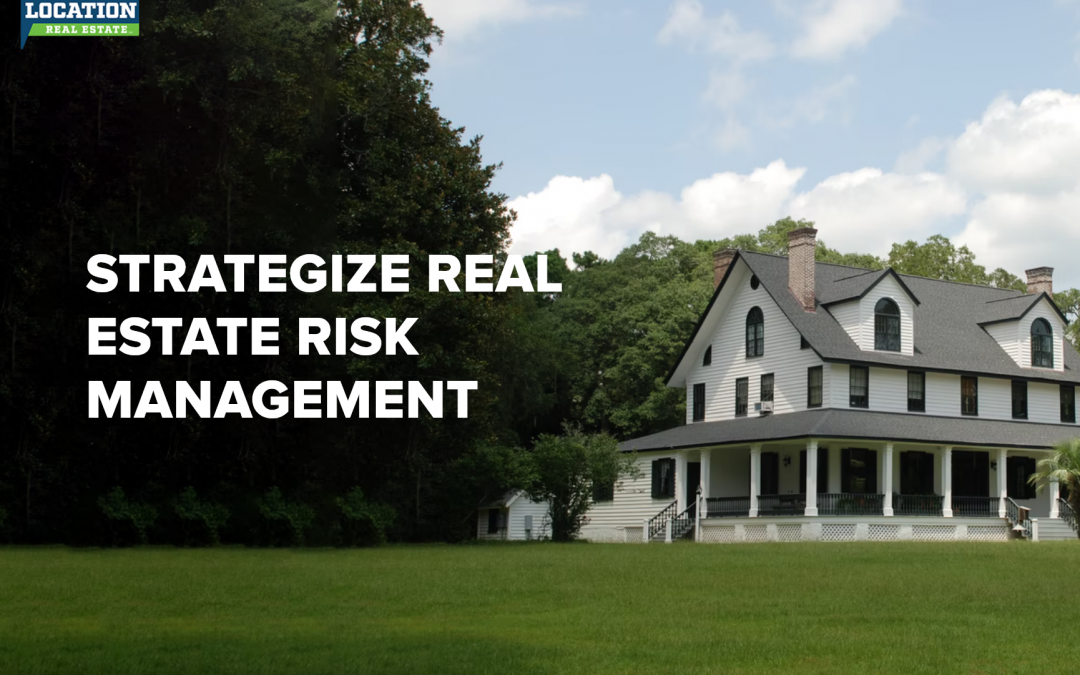When it comes to real estate, risk management is a crucial factor that is at every step of the process.
Real estate risk management
Any kind of disaster can be a threat to a property from a financial aspect. When you are building a real estate portfolio, it is important that you have a clear understanding of the risks and have solutions in place to manage them.
Our team of realtors in Lincoln Nebraska has professional experience in helping people mitigate real estate risks. For a consultation, contact us today.
Stay ahead of the curve and educate yourself of the potential threats or risks so that you are ready to deal with any potential threats. Firstly, let us discuss strategies to reduce risks:
Avoidance: One of the best ways to deal with a risk is to avoid it. Think of it this way: if you are looking to avoid potential drowning lawsuits, make sure your property doesn’t have any pools or hot tubs.
Control: There are risks that can’t be avoided but need to be faced. In such a case, risk control is the best strategy. Having a proper property maintenance system or precautions in place will help with risk control.
Transfer: If you can’t avoid or control the risk, the next best thing you can do is transfer those risks.
Let us find out about the other ways of risk mitigation
One of the best ways to mitigate risk is diversification. When you own varying asset classes across different sectors or markets, you are reducing the risk of exposure. Within a centralized market, when you have assets across multiple sectors or markets, you do not have to worry about risks arising from market downturns.
Real estate is one of the industries that have had a chance to bloom during the COVID-19 pandemic, while certain others, such as retail and hotels, have suffered a major setback. You can work on controlling risk by preventing your portfolio from being overleveraged and maintaining substantial reserves. So, in case of a market downturn, you will have sufficient liquidity to maintain your investment until the market recovers from the downturn.
Watch out for changing market conditions. This will help you to take the necessary steps to control as and when required. When the market conditions improve, you can sell the asset and move to a newer asset to avoid unnecessary wastage of time.
Legal risks
Real estate investors are often faced with litigation. This is why it is always recommended that you keep the essential protections ready to cover the costs of injury. We can never predict when someone might get injured or file a suit against you, citing breach of contract, wrongful eviction, failure to disclose a defect, or others.
Mitigation
Investors should have a clear understanding of the local, state, and national laws concerning real estate so that they are compliant with these laws. Hire a professional attorney for assistance when drawing contracts, loan documents, leases, or any other underwriting documents.
However, remember that you’re always at risk because you never know when a tenant, realtor, or borrower would legally charge you for eviction or foreclosure, despite you having done nothing wrong. Here is where you can benefit from risk transfer.
General liability insurance
You can use general liability insurance to cover medical costs (in case of an injury) or property damage claims, in addition to the legal fees or settlement claims.
Errors and omissions insurance
If you have this insurance in place, you do not have to worry about covering any issues, arising from employee-client relationships. This type of insurance comes in handy, in case if an employee decides to wrongfully sue an employer or the firm.
Make sure that you are tracking and maintaining a record of all financial transactions and communications involving tenant, investor, and borrower. Ensure that whatever you do is legal. When a lawsuit is filed against you, you can validate your position using these data or details. If you are using the digital mode of communication, have sufficient processes in place to keep the information safe as cyberattacks and threats are more prevalent now than ever.
Implement systems to safeguard sensitive data against any kinds of threats.
Dealing with environmental risks
Damages to your property due to environmental factors, such as earthquakes, tornadoes, or others, are unpredictable. The damages brought about by such environmental factors are likely to be quite severe.
Mitigating environmental risks
You can avoid such risks by not purchasing real estate across any high-risk areas, such as Gulf Coast. However, with an increasing population, finding a property in an area with low or no exposure to such risks is challenging.
In such a case, you could transfer your risk exposure by having property insurance in place. Any property damages arising from environmental factors would be covered by property insurance. However, damages arising from environmental hazards, such as floods, might need flood insurance.
Final thoughts
Do not wait till something happens. Plan in advance. Having general liability insurance and property insurance will help you to mitigate most real estate risks.
If you need any assistance with strategizing your real estate risks, reach out to our team of Lincoln realtors. We will help you to mitigate the risks with effective solutions.

